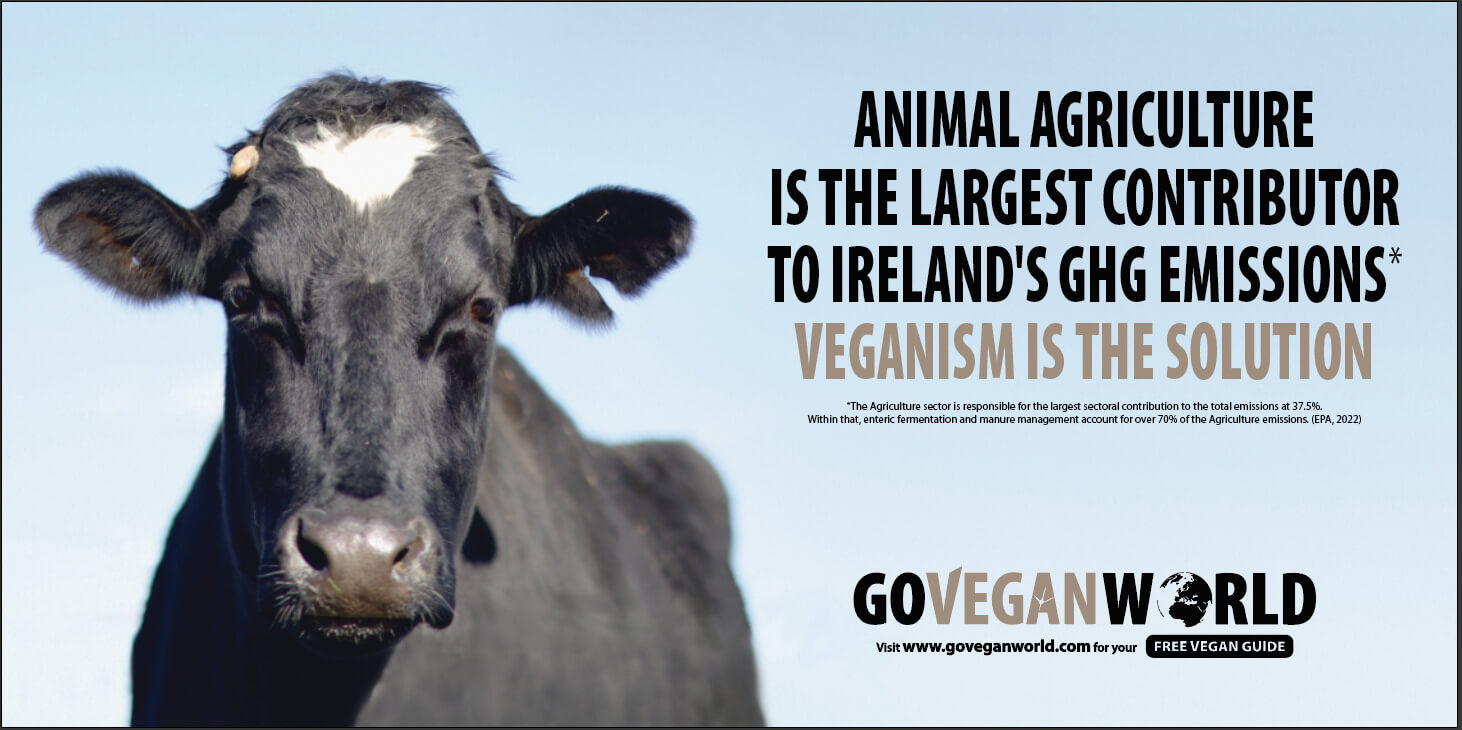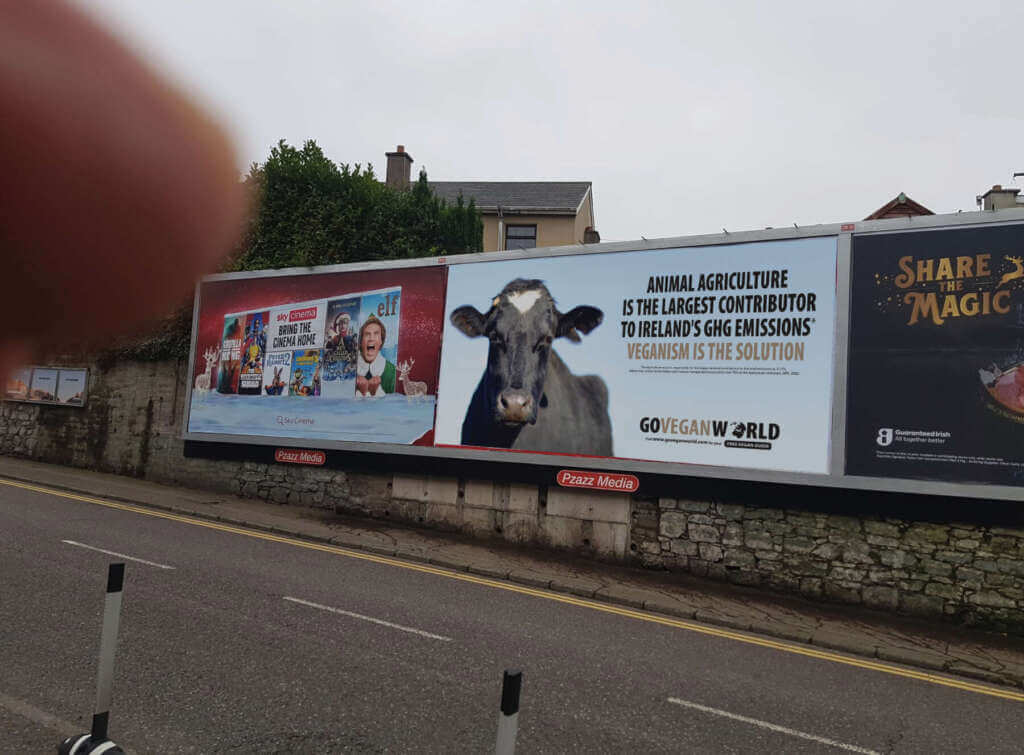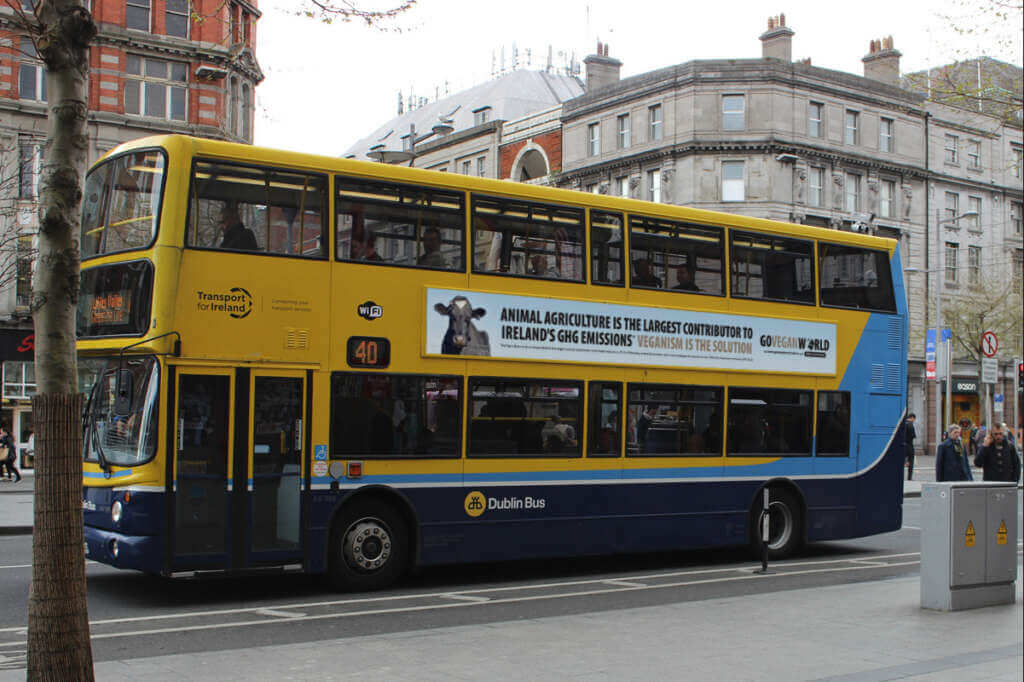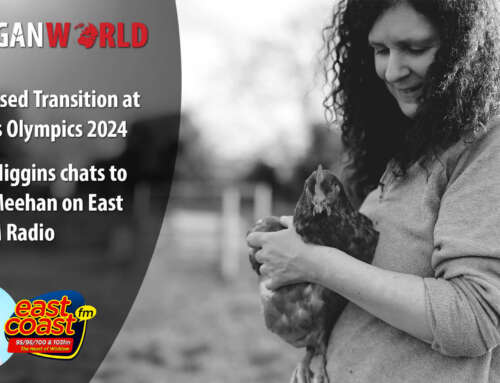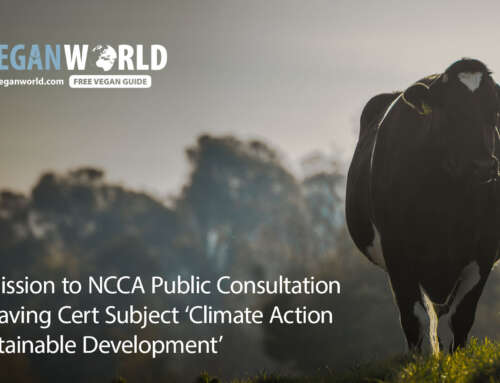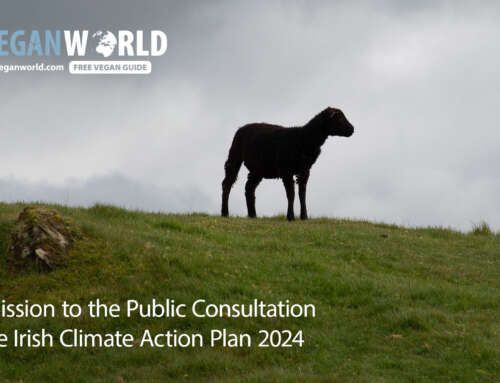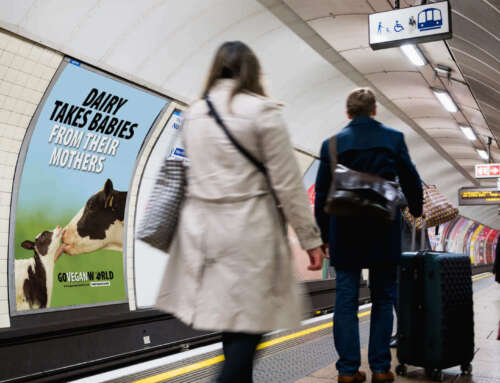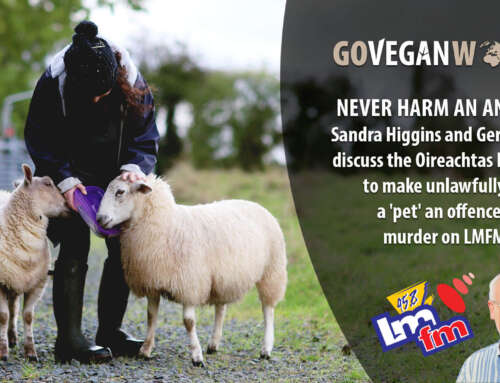1st January 2023
Go Vegan World’s 2023 New Year Campaign in Ireland
Our New Year campaign addresses veganism as a moral imperative and references the effects of non-veganism on climate change. The campaign will run on 120 buses as well as billboards nationwide.
Veganism is an ethical stance against the exploitation and slaughter of other animals. There is only one reason to be vegan and that is respect for the rights of other animals: acknowledgement that they are sentient (feeling) beings who value their lives, and do not choose to die. Being vegan means accepting that it is morally unacceptable to use other animals as resources or commodities, to own, exploit, and profit from them, to control them in any way, and to kill them.
There are many ways in which we use other animals, for entertainment, labour, research, clothing, and food. By far the greatest numbers are used in the animal agriculture industry for food and by products. What we eat matters, not because veganism is a diet, but because the greatest number of sentient individuals are exploited, harmed, and killed for food when we could just as easily eat plant food.
The healthiest diet is a whole foods plant diet, that is well planned to include essential nutrients. All the major world dietetics associations and many medical organisations acknowledge that a vegan diet is sufficient for human health and research shows that vegan diets can have significant health benefits over diets containing animal products.
There is also an increased focus on eating sustainably, with organisations such as EAT Lancet recommending that in order for the planet to be able to sustain our food needs, we need to adopt such a radical reduction in the consumption of animal products that it is just as easy for people to eat a 100% plant diet (https://eatforum.org/eat-lancet-commission/). Animal agriculture is extraordinarily damaging to the planet, causing air, water, and soil pollution, loss of habitats and biodiversity, and climate change.
When people think about how to change their behaviour in an attempt to ameliorate the effect they have on the natural world, most of them consider taking shorter, fewer showers, reducing the temperature on their central heating, travelling less, or if they can afford it, buying an electric car. But if we have a look at the figures on GHG emissions sources we get a better idea of where we could most usefully change our behaviour. The latest report from the United Nations Food and Agriculture Organisation (FAO) states that almost one third (31%) of human caused climate emissions originate from the world’s agri-food systems. In Ireland, we can see that the transport and energy sectors are significantly lower emitters than the agriculture sector, most of which is comprised of animal agriculture.
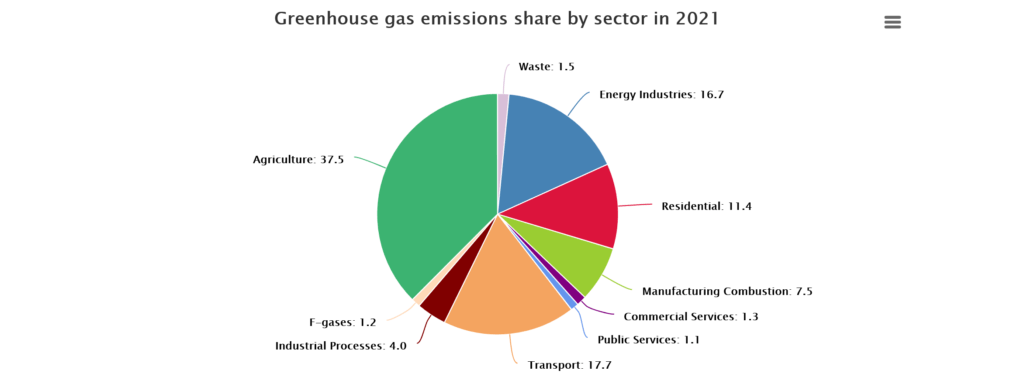
Source: https://www.epa.ie/our-services/monitoring–assessment/climate-change/ghg/latest-emissions-data/
The most recent Environmental Protection Agency (EPA) reports state that in 2021, the energy industries, transport and agriculture sectors accounted for 72% of total GHG emissions. Agriculture is the single largest contributor to the overall emissions, at 37.5%. Transport, energy industries and the residential sector are the next largest contributors, at 17.7%, 16.7% and 11.4%, respectively (https://www.epa.ie/our-services/monitoring–assessment/climate-change/ghg/latest-emissions-data/, accessed 24/12/2022). The agriculture sector is responsible for the largest sectoral contribution to the total emissions. Within that, enteric fermentation, and manure management account for over 70% of the agriculture emissions. This report also states that the most significant drivers for the increased emissions in 2021 were increased use of synthetic nitrogen fertiliser use of 5.2% and higher dairy cow numbers of 2.8% with an increase in milk production of 5.5%. This is the 11th consecutive year of increases in dairy cow numbers. Milk output per cow also increased (2.5%), therefore increased production was driven by an increase in the number of animals used by the industry in conjunction with an increase in milk yield per cow. We can only begin to imagine the toll this is taking on individual, sentient, mother cows and the calves who are separated from them so that we can consume they milk they produce to feed them, that is unnecessary for our health and that is so environmentally destructive (https://www.epa.ie/publications/monitoring–assessment/climate-change/air-emissions/irelands-provisional-greenhouse-gas-emissions-1990-2021.php/ Accessed 24/12/2022).
It is strikingly obvious that Government measures to target emissions, and the individual actions that follow from the information members of the public learn through the media, is not only grossly inadequate, but also actively avoiding the elephant in the room. The same agencies that report on the disproportionately high emissions emanating from the animal agriculture sector, fail spectacularly to mention that the single largest contributor could be redressed by transitioning to plant agriculture and plant diets. If the public were made aware that they could reduce emissions far more significantly and far easier if they changed how they eat and adopted a plant diet, they would be more inclined to try.
The media have a responsibility to report accurately on environmental matters and climate change. Members of the public have a right to accurate information. Far too often, reporting is reactionary rather than consistent and educational. It is also toned down to appease the industries that cause the most damage. On more than one occasion, Go Vegan World has struggled to run campaigns with Ireland’s state owned transport company, through the agency (Global) that has a monopoly on transport advertising in Ireland. In particular, Global has attempted to stymie ads linking animal agriculture to climate change. In fact, despite the clear supporting references to the research on our ads, Global specifically asked us to remove the word ‘animal’ from the phrase ‘animal agriculture’, and threatened not to print the ads unless we gave in to their demands. Why would an advertising agency care what claims we make, as long as we can back them with scientific evidence and they are in the interests of the public? It can only be because they are in the pockets of the industries that profit from the status quo regardless of the dire consequences if we continue to live as we are. Veganism is a solution to so many human problems, as well as the very least we owe other animals. It’s time to start talking about it.

